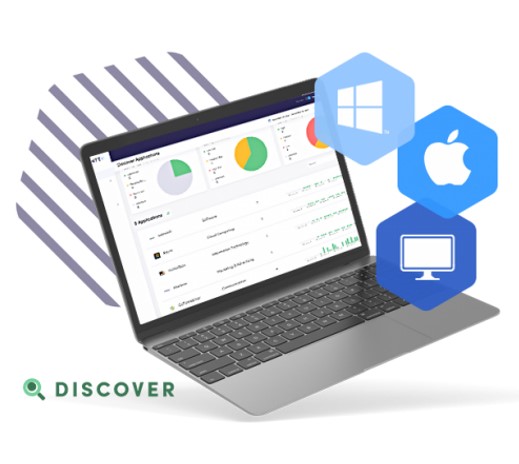Augmentt has updated two core components of its administration and security suite for software-as-a-service workloads.
The recently shipped enhancements add support for desktop applications to Discover, the vendor’s cloud software inventory product, and add alerts to Secure, Augmentt’s cloud security posture management solution.
Discover, which originally focused exclusively on web-based solutions, now includes locally-installed systems as well in its comprehensive overview of a client’s software estate.
“It will take a look at absolutely everything that’s on the desktop,” says Derik Belair, Augmentt’s CEO. “The reality today is most of those desktop apps are actually just cloud applications or SaaS applications with a desktop icon.”
The new alerting functionality supplements Secure’s reporting capabilities with real-time warnings of potentially dangerous configuration changes, like multifactor authentication being disabled on an administrator account.
“We had given you a point in time view of the posture,” Belair explains. “What we’re doing now is allowing you to basically monitor that posture over time, trend that posture for degradation, and then alert on critical aspects of the posture degradation.”
Adding limited desktop management to Discover is a step in the direction of turning Augment’s toolset into the main and potentially only management interface cloud-focused MSPs need to support their customers. Nerdio, a cloud provisioning and management vendor with a particular emphasis on Microsoft 365, Azure, and Windows 365, took a similar step two weeks ago during its 2022 partner conference.
Still, according to Belair, Augmentt’s suite will never mimic the capabilities found in traditional RMM solutions from companies like ConnectWise, Datto, and N-able, largely because channel pros have less and less need for those capabilities.
“People see desktops as being disposable,” he says. “Device management these days is a lot less about CPU, and disk, and memory, and those types of traditional metrics that a lot of the RMMs have looked at for many, many years.”
What administrators want to know now, Belair continues, is whether a given endpoint is in compliance with policy requirements. “For example, when a user logs in, does he have the right desktop apps? Does he have the right access? Does he have the right security permissions?”
Belair and Augmentt Chairman Gavin Garbutt, who co-founded the original iteration of N-able some two decades ago when it was among the tech industry’s first RMM vendors, launched their new venture in 2020 to serve an equally new generation of MSPs.
The company currently offers four products. Discover was the first to reach market, followed later in 2020 by a backup solution for Microsoft 365, Google Workspace, and Salesforce. Engage, a management interface for Microsoft 365 and Google Workspace, shipped last May, followed by Secure in November.
Secure supports Microsoft’s cloud exclusively at present but will soon expand to monitor Google applications, and eventually protect leading CRM, file sharing, and collaboration platforms too. It will gradually gain the ability to fix the policy lapses it identifies as well. “We do a really good job at giving you lots of data points from a security perspective,” Belair notes. “What we want to do now is really focus on the remediation.”
Augmentt is also exchanging data with a growing list of RMM vendors and leveraging their implementation processes to make installing its agents easier. Integration with the ConnectWise Manage PSA solution that will automatically convert security alerts into tickets is in development, with similar functionality for Datto’s Autotask PSA set to follow. Augmentt joined Datto’s Developer Partner Program last October.
A little less than two years after opening for business, Augmentt currently has about 500 partners and adds 32 to 50 per month. Like Nerdio, the company views the slow pace at which MSPs are adjusting to the new cloud-first era of managed services as the chief brake on its growth. It’s a phenomenon Belair saw play out similarly years ago when break-fix providers began becoming MSPs.
“People knew that something had to change and that doing more things remotely meant more profitability of services and recurring services,” Belair observes, but embracing a whole new way of operating takes times. “Nobody wakes up one day and says, ‘you know, I should really think about changing my entire business model.'”
Adding administration and security services for Microsoft 365 is a logical way for most channel pros to begin the transition from endpoint-oriented to post-endpoint managed services, he adds.
“The beautiful thing with Microsoft management is that it’s the natural next step for the MSP to take towards cloud and SaaS,” Belair says. “It really starts to evolve their business, and once they take that first step it doesn’t take long for them to just kind of keep going down that road.”
SkyKick, BetterCloud, and JumpCloud are among the many, mostly younger, companies competing with Augmentt and Nerdio in cloud management. Barracuda Networks and Sophos both offer cloud security posture management products too.














